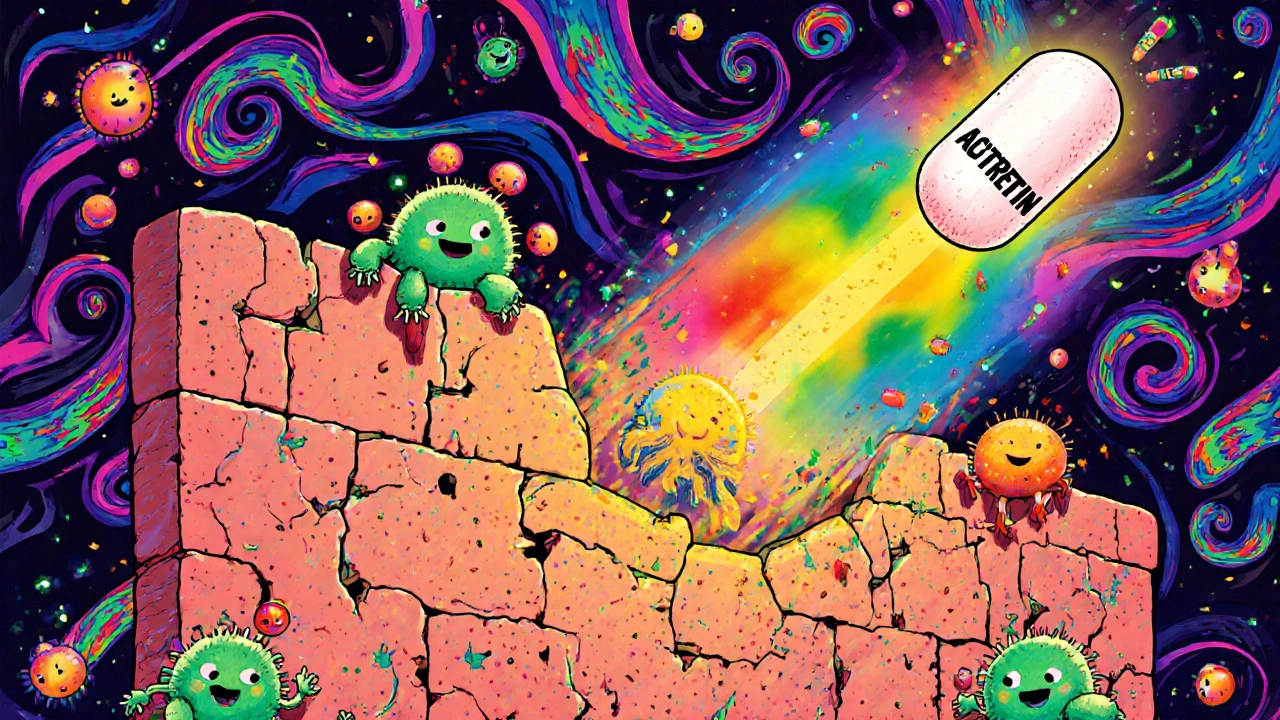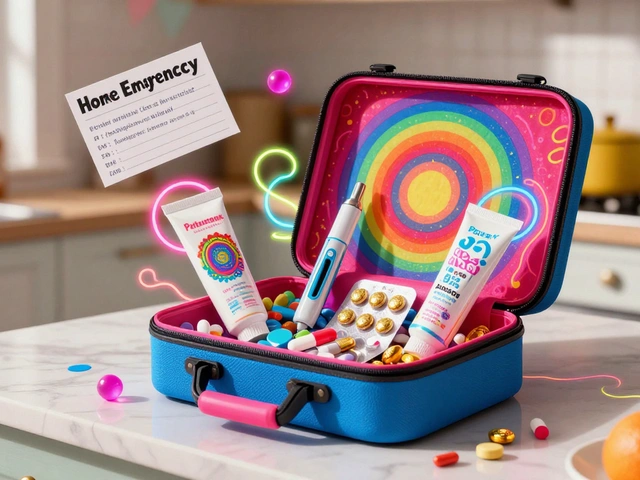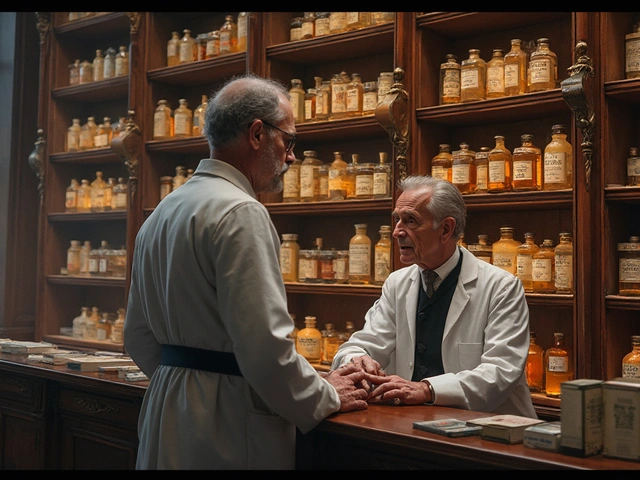Retinoid Side Effects: What You Need to Know Before Using Them
When you hear retinoid, a class of vitamin A derivatives used to treat acne, aging skin, and psoriasis. Also known as vitamin A analogs, they work by speeding up skin cell turnover — but that same mechanism can cause real, sometimes stubborn, side effects. Not everyone reacts the same way. Some people get mild flaking and redness. Others deal with burning, peeling, or even worsening acne before things improve. It’s not just about your skin, either — oral retinoids like isotretinoin can affect your liver, cholesterol, and even your mood.
Topical retinoids — the creams and gels most people use — are often blamed for skin irritation, a common reaction including dryness, redness, and stinging. But the problem isn’t always the product. It’s how you use it. Applying too much, too often, or mixing with other strong actives like AHAs or benzoyl peroxide can turn a helpful treatment into a painful one. And if you’re using retinoids in the sun without proper protection, you’re asking for trouble — they make your skin more sensitive to UV damage. Oral retinoids carry heavier risks: elevated triglycerides, liver enzyme changes, and in rare cases, depression or inflammatory bowel disease. Pregnant women absolutely cannot take them — these drugs cause severe birth defects.
Many people quit retinoids too soon because they assume the side effects mean it’s not working. But that initial irritation? It’s often a sign the product is doing its job. The key isn’t avoiding side effects entirely — it’s managing them smartly. Start slow. Use a pea-sized amount. Apply it every other night. Moisturize before and after. Skip harsh scrubs and alcohol-based toners. And if you’re on an oral version, regular blood tests aren’t optional — they’re necessary.
What you’ll find below are real, practical guides from people who’ve been through this. From how to tell if your redness is normal or dangerous, to which retinoids cause the least irritation, to what supplements might help reduce flaking — all backed by real-world experience and clinical insight. No fluff. No marketing. Just what actually works when your skin is on fire and you’re wondering if it’s worth it.
Acitretin and Skin Infections: What to Watch Out For
Acitretin can clear severe psoriasis but increases the risk of skin infections. Learn what infections to watch for, who’s most at risk, and how to protect your skin while on this powerful medication.






